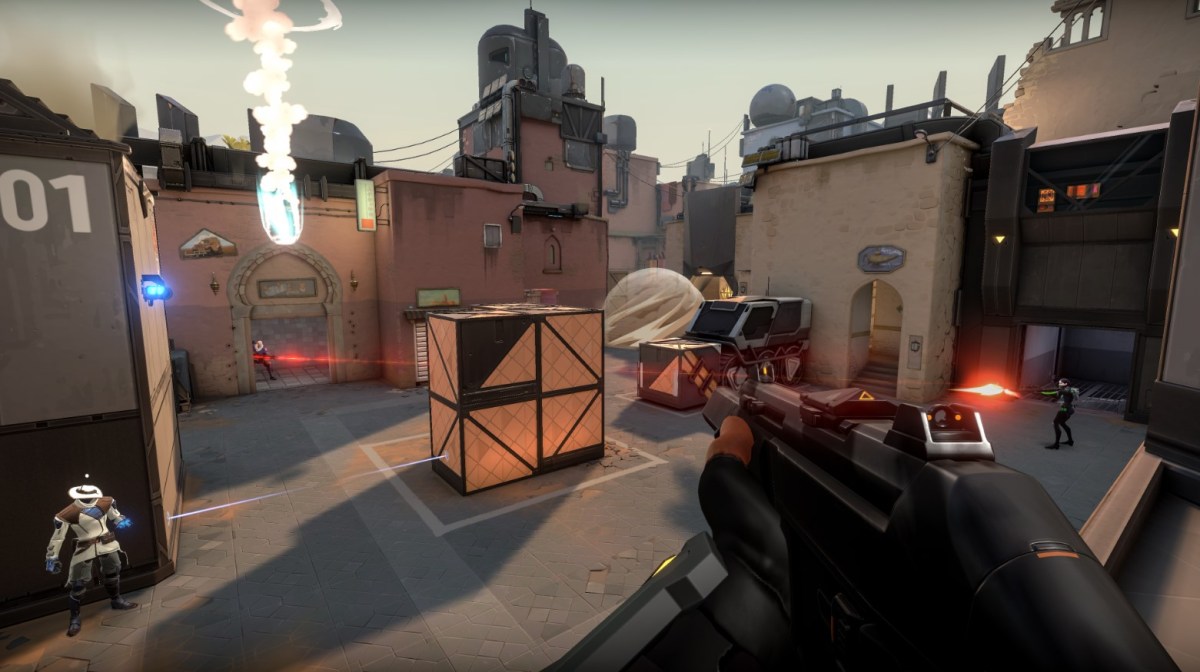Riot Games are positioning Valorant, its new 5v5, competitive tactical shooter, to take on games like CS:GO and Overwatch in the esports space. On top of providing 128 tick servers, and a vast server network to try and guarantee the lowest possible pings for players, they are also taking the game’s anti-cheat measures extremely seriously.
Riot is taking a three-pronged approach to anti-cheat in Valorant, using the below measures to try and ensure a fair gaming experience for players.
In-engine wallhack resistant “Fog of War”
Valorant will employ what Riot is referring to as a “fog of war” system, that will omit player locations from the game data stored in memory until just before the line of sight contact. This means that Wall Hacks, which would traditionally trawl the game data for player position information and display it on the user’s screen via an overlay, will be unable to do so.
Server-authoritative game architecture
All Valorant matches will be server-authoritative, which means that all game settings and parameter authorizations happen on the server-side. This means players cannot alter anything on the client-side, which is traditionally how cheats like speed hacks or teleportation hacks work.
Proprietary cheat detection
Valorant will run two different forms of anti-tamper systems. The first is the system that was developed for League of Legends, and the second is a new anti-cheat system called Vanguard that will allow for what Riot refers to as a “consistently evolving detection method.” Vanguard will also allow Riot to ban cheats at the moment that cheating is detected instantly, and they will not need to wait for a reporting system to point out instances of cheating.
If you are playing in a game, and the game detects cheating, the cheating player is banned. The game is ended and is immediately forgiven for all players in the game that were playing legitimately. This means you won’t have to sit in a lobby with a cheat on the other team, or yours, for fear of a leaver penalty of taking a loss on your record.
This is everything we currently know about the comprehensive anti-cheat measures that will be in place in Valorant from launch day.
We will update this article with any future information that Riot releases around the game’s anti-cheat measures.








Published: Mar 2, 2020 03:03 am